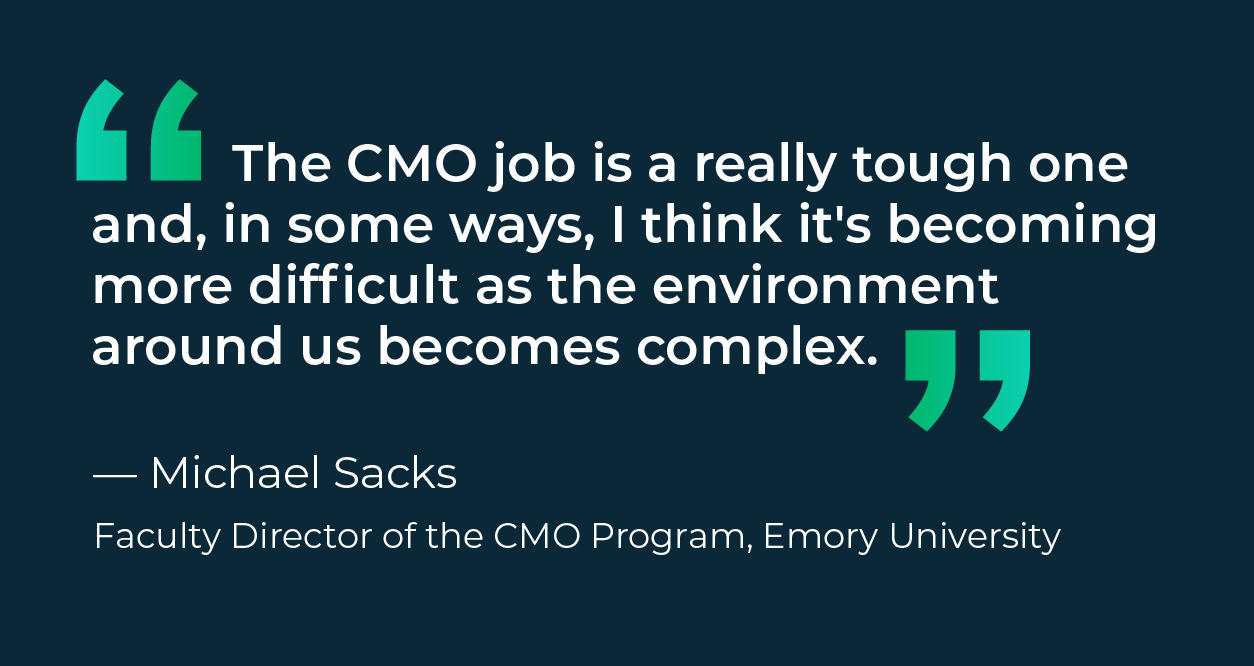A New Generation of Chief Medical Officers: The Evolution of Health Care Leadership

Health care is now facing tremendous challenges, including employee burnout and digital transformation, to name just a few examples. As a result, the role of the Chief Medical Officer is evolving quickly. In today’s hospitals and medical facilities, executives with additional leadership or business education are in highest demand.
CMOs have always played a pivotal role in leading health care systems—to operate hospitals and communities while overseeing best-in-class care. Emeritus Healthcare brought together a panel of medical experts to discuss the health care leadership skills needed for today and the future.
The Challenges of Health Care Leadership for CMOs
Health care experts say CMOs no longer focus entirely on medical care and quality. They must also be proficient in finance, business strategy, people management, and delivering high-quality, accountable care at a lower cost.
CMOs should also be able to effectively communicate with decision-makers as varied as boards of directors, senior hospital administrators, community leaders, and, of course, their own medical staff. That’s a broad constituency and one that may require a dash of diplomacy and the gift of persuasion.

“We do know hiring new leadership talent is very expensive, very time-consuming, very difficult in any industry,” said Ranil Herath, President of Emeritus Healthcare. It’s even more complex in health care due to recruiter fees, relocation costs, and signing bonuses, among other challenges.
One solution? Upskilling leaders from within.
“The implication of a cost of a vacancy is extremely high,” Herath said. Upskilling internally allows medical institutions to create “a ready-now bench of leadership at a significantly lower cost” while engaging and retaining top talent.
That’s why so many current and aspiring CMOs are enrolling in programs to teach them how to lead and effectively solve the complex problems facing leaders today.
Building Health Care Leadership Skills
The most successful Chief Medical Officers are the ones who know that an organization needs to do well before it can do good. That ties back to the basics: money, people, and quality.
Recruiting and hiring a new CMO is one of health care leadership’s most crucial staffing decisions. But it takes planning and purpose to find the right individual to lead an effective team.
“The CMO job is a really tough one and, in some ways, I think it’s becoming more difficult as the environment around us becomes complex,” said Michael Sacks, faculty director of Emory Executive Education and the Chief Medical Officer Program. “One of the things I observe is the breadth and scope of asks and requests CMOs get is really astonishing. Some of them are directly related to their training, and a lot it is not.”
Sacks has been developing programs for the medical field for 20 years. He said those who enroll in medical leadership courses typically have experience in health care. However, they may need additional training specifically in leadership.
“They’re handed the keys to the car and [told], ‘good luck!’,” Sacks said. “Sometimes, it’s a nice fit with their skills; sometimes they just haven’t been trained in it. No disrespect; quite the opposite.”
He continued, “What I’m passionate about is designing leadership development for people in health care who can pick it up quickly with some more exposure, some frameworks, and then they’re effective in their jobs when they move forward. “
Among the most important non-medical aspects for a CMO to master: building a talented and cohesive team and understanding the financial aspects of their work and mission. These health care leadership skills are non-negotiable today.
“Now, with these three areas of people, quality, and finances so tightly linked together, the Chief Medical Officer of today is going to have to dig into the other aspects of people and finances,” said Dane Peterson, interim CEO of Emory Healthcare. “I think the challenge is going to be that it’s predominantly going to be through influence. [CMOs] aren’t necessarily going to have the direct accountability over HR.”

Developing Health Care Leadership Strategies
Health care centers are increasingly prioritizing prevention and screening efforts for the earlier treatment of complex diseases. This benefits the patient as it requires less intensive, less costly treatment than they would receive for an acute condition.
Nonetheless, today’s CMOs will have to prioritize building internal support for prevention and early detection, among other front-weighted expenses that will only yield savings over time. Some mandates are never recouped but are vital to patient care.
“[Unfunded mandates] are a huge challenge,” said Sheryl Gabram-Mendola, Chief Scientific Officer for the Georgia Center for Oncology Research and Education. These can include the cancer navigators who improve a patient’s care or are pursuing accreditations to highlight clinical standards.
“The CMO has to be on board with that because they really can cause a program to adhere to the requirements for those accreditations and improve the quality,” Gabram-Mendola added.
Diversity, Equity, and Inclusion in Modern Health Care Leadership
Gabram-Mendola said diversity, equity, and inclusion strategies are essential for modern health care leadership—especially because, on average, 30% to 35% of patients they serve in hospitals are minorities. And these patients, Gabram-Mendola said, should also see this diversity among the professionals who care for them, all the way up to the C-suite level.
DEI programs can improve a medical institution’s trust and communication with local communities. Such programs can also bring a revamped leadership style and insights that can benefit a larger organization.
Many geographic areas have a diverse pool of applicants for health care leadership roles, Gabram-Mendola said. She advises CMOs to seek out female candidates—as well as racial, ethnic, and other minorities—for such positions.
The Role of Communication in Medical Leadership
The CMO may not always be able to expand their budget, but they can extend their reach. Focusing on strategic cooperation between peers within an organization or medical institution can facilitate the sharing of vital information. It can also leverage the clout of numbers, with multiple voices identifying the same trends and amplifying a message.
If there were any doubts about the power of communication in health care leadership, the COVID-19 pandemic laid them to rest. “During the depth of the pandemic, the systems across Atlanta really came together, honestly for the first time,” Peterson said.
In the beginning, CMOs met daily to discuss the core issues at hand and proposed responses. They traded best practices to protect staff and even signed group editorials in The Atlanta Journal-Constitution. Peterson said that collaboration is “something we can build on.”
Peterson would like to see this cooperation between health care systems continue, noting the benefits to health facilities and patients alike.
“Think about how CMOs are wired: [to] help people and lead. I think there are opportunities now that probably weren’t available before the pandemic for us to collaborate,” Peterson said.
Sacks agreed: “[Collaboration] takes less time, less money, and less energy to do this well than it does not to be thoughtful and have to clean it up afterwards.”
Learn more about the Emory Executive Education Chief Medical Officer program—a 9- to 12-month immersive learning journey—or explore ways Emeritus Healthcare can upskill your team or organization through our learning solutions.




